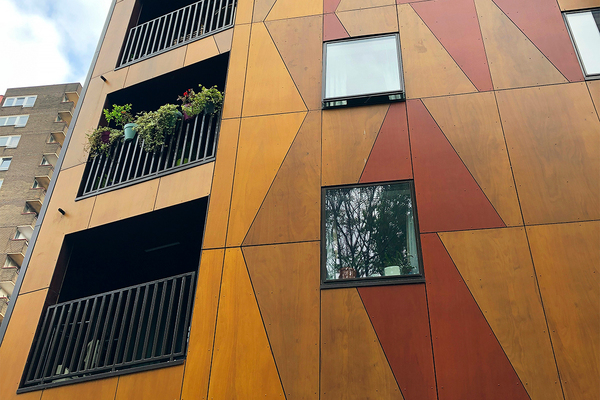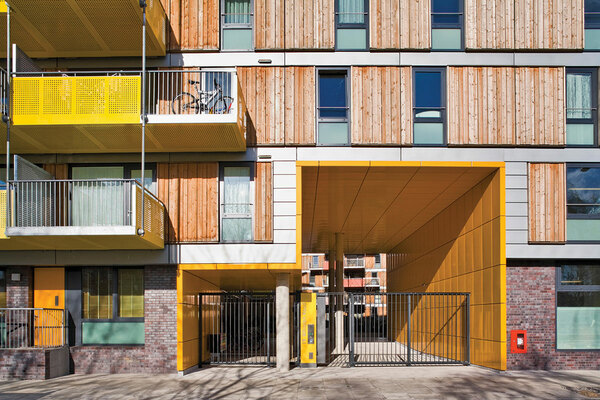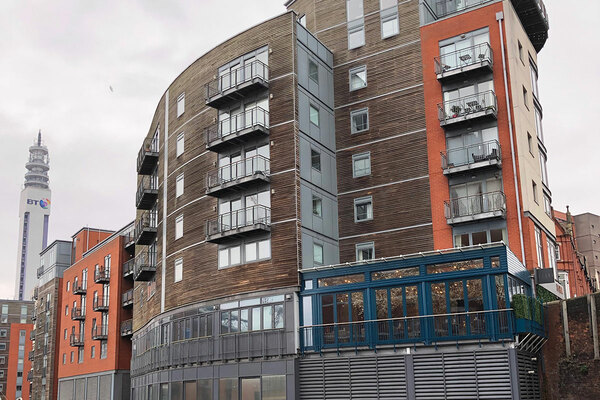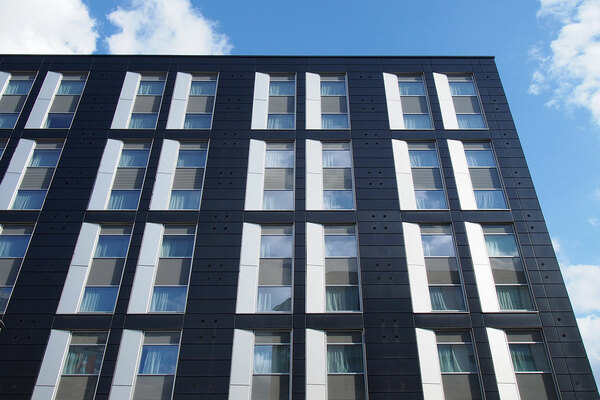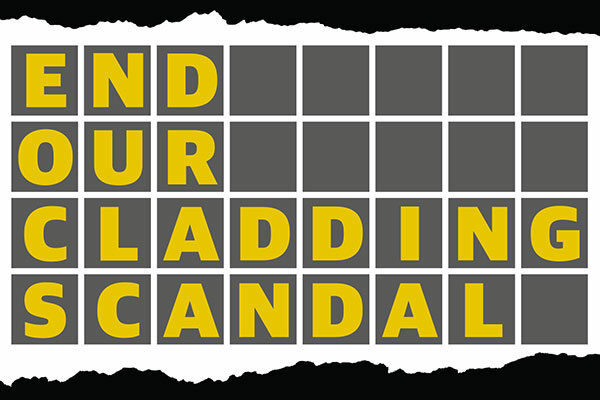Housing association leaseholders told it could take years for apartments to be saleable
Leaseholders living in housing association blocks with potentially dangerous cladding have been told they may have to wait years for their homes to become saleable, due to the scale of the inspection and remediation work facing organisations.
Hundreds of housing association shared owners and leaseholders are currently trapped in their homes, unable to sell, as banks are unwilling to provide mortgages on buildings that may have dangerous cladding.
Inside Housing has seen letters sent by L&Q to multiple affected residents that said it expected its building inspection and remediation programme would “take several years to deliver”, adding that it believes most of its buildings “will need some form of remedial work”.
Housing associations across the country are being required to carry out intrusive surveys on their buildings to assure lenders that the building complies with government advice published in the wake of Grenfell.
Housing associations nationwide are currently having to carry out EWS (short for ‘external wall system’) surveys on buildings to assure lenders that they comply with government advice.
EWS is a new system set up by the Royal Institute of Chartered Surveyors set up to try and unstick the property market after thousands of leaseholders were left unable to sell their apartments due to potentially dangerous cladding
It requires an intrusive survey of the building’s external walls, and an inspector deems whether it meets government guidance or is of limited risk so mortgages can be given.
Inside Housing has heard of quotes of between £12,000 and £23,000 being offered to associations and private developers.
However, the sheer number of buildings and shortage of inspectors mean leaseholders have had to wait for the inspections, with those in buildings deemed in need of remediation waiting even longer.
A representative from L&Q said: “We understand how upsetting and stressful it is for our affected residents to hear that we are not able to solve this situation quickly.
“We want to do everything we can to support leaseholders whose mortgage application or sales process has been disrupted as a result of the approach that lenders are taking.”
Several other associations are also having to tell leaseholders to brace for long waits before their buildings can be given a clean bill of health.
Ruth Davison, chief executive at Islington and Shoreditch Housing Association (ISHA), told Inside Housing “it could take two or three years as a very realistic timeframe” for EWS checks and remedial works to be completed on its blocks.
ISHA has 21 buildings higher than 18m in its stock that need to be inspected. It expects several will require remedial work.
It is about to start an in-depth programme to fix fire safety issues and carry out EWS checks on its blocks, prioritising the buildings most at risk – an approach being taken by most associations.
Ms Davison said: “There is no other moral or defensible way to prioritise than on risk. This may unfortunately mean that people we believe to be in the safest buildings may have to wait longest for us to open up their building and get the EWS1 form.”
She added: “This is about systemic failure of the system, not ISHA. Even if we wanted to do all the work simultaneously, we couldn’t – there aren’t enough fire engineers.”
Ms Davison also said that the organisation was being quoted between £12,000 and £18,000 for EWS checks to be carried out.
Delays to these checks are being further exacerbated by a shortage of inspectors able to carry them out, and inspectors finding it difficult to secure professional indemnity cover to conduct the work.
Swan Housing Association has also written to residents to say it “cannot commit to providing specific timescales” for providing EWS forms to lenders, as it is undertaking an inspection process of roughly 190 of its blocks.
A spokesperson said it had a large number of homes to inspect and was carrying out its inspections from a risk-based perspective.
“As has been widely recognised, as a sector there is a real shortage of suitably qualified professionals to undertake these inspections and with the Category 4 inspections, access to some individual properties is also required. However, we are already working with one of a very limited number of independent specialist companies that are available to undertake this work.”
Victoria Moffett, head of building and fire safety programmes at the National Housing Federation, said: “In line with government advice, housing associations are checking buildings of any height for dangerous cladding.
“This could take many years to complete as there is a limited number of fire experts available to review buildings for any safety risks, as well as a limited number of contractors able to carry out safety works.”
She called on the government to coordinate resources to fix the buildings most at risk and provide funding to speed this up.
Helen Evans, chair of the G15 group of housing associations, said: “The most urgent problem for government to solve is that of leasehold owners who are stuck through an inability to obtain mortgage valuations.
“We’re calling on government to urgently consider how leaseholders can be assisted and the market unstuck.”
What the associations say
Picture: Getty
Swan Housing spokesperson: “Firstly, as a landlord the biggest single concern is the safety of our residents and we are really sorry that some of our residents have been caught up in this current national issue. Like other landlords, we are having to respond to a rapidly changing situation regarding fire regulations and building certification and are very aware that this evolving situation has raised an issue for leaseholders nationally.
“As a housing organisation, we are keen that our residents can make their normal life decisions in an uncomplicated way.
“We, like most medium to large housing associations, have a large amount of homes which we are committed to inspecting as required. However, this volume of homes means that we have to approach this programme of inspections from a risk-based perspective, dealing with higher-risk buildings in the first instance.
“As has been widely recognised, as a sector there is a real shortage of suitably qualified professionals to undertake these inspections and with the category 4 inspections, access to some individual properties is also required. However, we are already working with one of a very limited number of independent specialist companies who are available to undertake this work.
“We are unable to comment on individual cases but can confirm that we are working with our assessors to confirm the programmed date of the inspection of this property and that our leasehold teams are committed to supporting all affected residents as this work is carried out.
“We are committed to delivering the best possible service to our leaseholders and are currently reviewing our response to requests in relation to sales of leasehold homes to ensure we are able to support leaseholders as fully as we are able.”
L&Q spokesperson: “L&Q is an early adopter of the government’s building safety proposals and has committed £250m to implementing the recommendations from Dame Judith Hackitt’s review of building safety. The safety of our residents is our utmost priority.
“We understand how upsetting and stressful it is for our affected residents to hear that we are not able to solve this situation quickly. We want to do everything we can to support leaseholders whose mortgage application or sales process has been disrupted as a result of the approach that lenders are taking.
“Our customer communications have been transparent in explaining the current situation, and that because we own so many buildings affected by the new guidance, we are not able to inspect, test, and then carry out works on them all at once. Instead we must prioritise our buildings based on risk.
“We are already undertaking inspections and carrying out remedial works to several buildings where we have identified issues with safety since the new guidance was issued, and are also due to complete our programme to remove aluminium composite material cladding (the type used on Grenfell Tower) from our high-rise buildings by April 2020. We would like to apologise to those residents who will need to wait for their building to be inspected – we know how difficult this situation is for them.
“Alongside the G15, the National Housing Federation and many other sector and resident groups, we are calling on the government to help fix this situation – we need them to reassure residents that they will not need to foot the bill for expensive works, give building owners a reasonable timeframe in which to resolve any outstanding issues, and work with mortgage lenders to help them relax their stance and begin lending on affected properties again.”
Ruth Davison, chief executive, Islington & Shoreditch Housing Association (ISHA): “We are prioritising buildings based on risk assessment and will investigate and make good based on the risk they may pose to residents. As we do that, we will do the work necessary for an EWS1 form.
“There is no other moral or defensible way to prioritise, than on risk. This may unfortunately mean that people we believe to be in the safest buildings may have to wait longest for us to open up their building and get the EWS1 form. This is about systemic failure of the system, not ISHA. Even if we wanted to do all the work simultaneously, we couldn’t – there aren’t enough fire engineers.”
End Our Cladding Scandal: campaign asks
The next government must:
- Create a ‘building safety fund’ to help pay for the necessary remediation work to affected buildings in the social and private sector – not just those with ACM cladding and above 18m
- Set up a taskforce, with the involvement of residents, capable of inspecting buildings, prioritising and ordering work and ensuring leaseholders are protected from unnecessary costs
